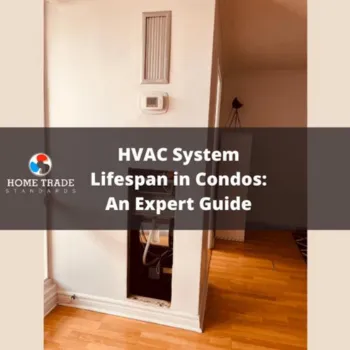Condo HVAC In 2025: Transitioning to R32 & R454B Refrigerants
As the Condo HVAC industry prioritizes environmentally friendly solutions, the transition from R410A to newer refrigerants, R32 and R454B, marks a significant change in 2025. These next-generation refrigerants reduce environmental impact and maintain the high efficiency and safety standards that modern condos and properties demand.If you’re a condo owner or property manager, understanding these changes…
The Many Benefits of Water Source Heat Pumps in Condominiums – Toronto & GTA
Unlocking Efficiency & Comfort: The Many Benefits of Water Source Heat Pumps in Condominiums Water Source Heat Pumps are the most efficient and easily serviceable solution for heating and air conditioning in high-rise condominiums. This type of HVAC system enables the most simple building system components, ultimately providing the highest return on investment for…
Flashing HPS Red Light on Your Condo Heat Pump System
If you notice a red high-pressure switch (HPS) light on your condo heat pump’s circuit board, it typically signals an issue related to elevated refrigerant pressure. The HPS serves as a safety mechanism, designed to deactivate the heat pump compressor when refrigerant pressure becomes excessively high. This illuminated light indicates a potential problem requiring expert…
Why Do Condo Heat Pumps Fail In Winter?
Condo Heat Pumps aka Water Source Heat Pumps typically fail due to 5 common reasons. Heat Pumps have strict operation requirements during heating or air conditioning seasons. Failure to satisfy these requirement will disrupt heat pump operation in winter months. By understanding these requirements and taking preventative measures, residents & property managers can ensure optimal…
Lifespan of HVAC Systems in Condos: An Expert Guide
Knowing the HVAC Lifespan In Your Condo can help you Plan & Budget for Maintenance, Repair and Replacement when necessary. Regular maintenance and good repair practices will eliminate the root cause of issues associated with in-suite HVAC systems. This article will provide a comprehensive guide to the Average Lifespan of Five (5) Common HVAC Systems Used In Condos: Fan coil systems, Heat pumps, PTAC…


